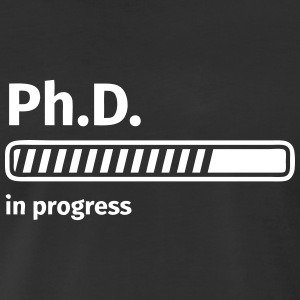I did not want to get out of bed today, at all.
However, N and I had plans to attend the STEM Career Symposium today at UCSD, about a 1.5 hours drive. If not for N, and the fact that we each paid ~$40 to register for this event (is this worth it? I kept wondering), I would’ve bailed. But alas, I compromised with myself and snoozed to the point where I got out of bed during the time we had planned to leave (sorry, N!). Traffic wasn’t terrible, and we made it there with plenty of time to start the day off with breakfast and networking.
What a day it was! Summarized in a line, the symposium stayed true to its title, “What Can You Be With a PhD?”, covering different pathways Ph.D. graduates take, such as standard positions in industry, but also less commonly discussed areas such as science policy, science writing, regulatory affairs, and consulting. Following the (fantastic) keynote speech given by Dr. Philip Sheridan from Bio4Front, the symposium was structured as a series of panel Q&As. Following each panel was a 15 minute networking session–basically a chance for the audience to swarm around the front of the room, asking more questions and swapping business cards.
Networking was definitely the strongest theme of the day. Not only was it scheduled into every other hour of the symposium, but panelists reiterated and reaffirmed the importance of building and maintaining a network as a crucial component of career attainment/development. Another contender for strongest theme was soft skills. Developing transferable skills was talked about as a collective thing, but also particular skills emphasized by different panelists (e.g., from a patent attorney: “If you don’t like to write, you shouldn’t consider this career.”)
I was surprised by the number of panelists present who founded their own companies, and this ranged from biotech to editing to consulting. The title, “Founder and CEO,” comes across as very impressive, and then they describe that their firm has five employees and then that puts things in other perspective. (Not that it isn’t impressive, but it gives one scope.) Along those lines, another common sentiment echoed by at least a few of those individuals is constantly seeking venture capital: “preparing the dog and pony show”, “always begging for money”, “you spend your savings, your parents’ money, your wives’ money, …”.
Overall, I definitely got my money’s worth for the day. There was a lot of extremely valuable advice from these experienced professionals and other attendees of the symposium. Not only that but also a repeated acknowledgement that research is super hard, but that it’s in a sense paying the due diligence, as a Ph.D. is required and even revered for these scientific positions.
Lastly, I’m closing with some significant quotes (paraphrased) that I heard from panelists throughout the day:
- It’s a Gaussian life, you’re not that special. (referencing this 2012 high school commencement speech)
- Don’t be annoying. (on networking)
- Follow your heart, follow your mind.
- Talk to people, even though, yeah, it is annoying sometimes.
- Prioritize. Everything is an opportunity cost.
- You are the CEO and CSO of your project. Be resourceful. Think outside of the box.
- The interview is like dating. If you don’t call them back, they won’t know if you had a good time.
- I would say 90% of my research failed. And then you just scrape yourself off the ground and run another Western blot.
- The harder I worked, the luckier I got.
- There’s a lot of re in research.
- The United States of America is consistently in the top three countries with adult scientific literacy. We don’t stop to think about this because we’re constantly flagellating ourselves because of the standardized tests that sixteen-year-olds take. (preceding a remark on how Americans can even consider going into different fields such as business because of our knowledge breadth that comes from four-year undergraduate education, as opposed to places around the world with three years)
- Learn how to write as if you’re writing for the New York Times.
- You will not get to the top of your field without being really really good at influencing people.
- Take risks. Are you good at taking risks?
- The ones who truly disrupt society are the ones who are comfortable working outside their comfort zone.
